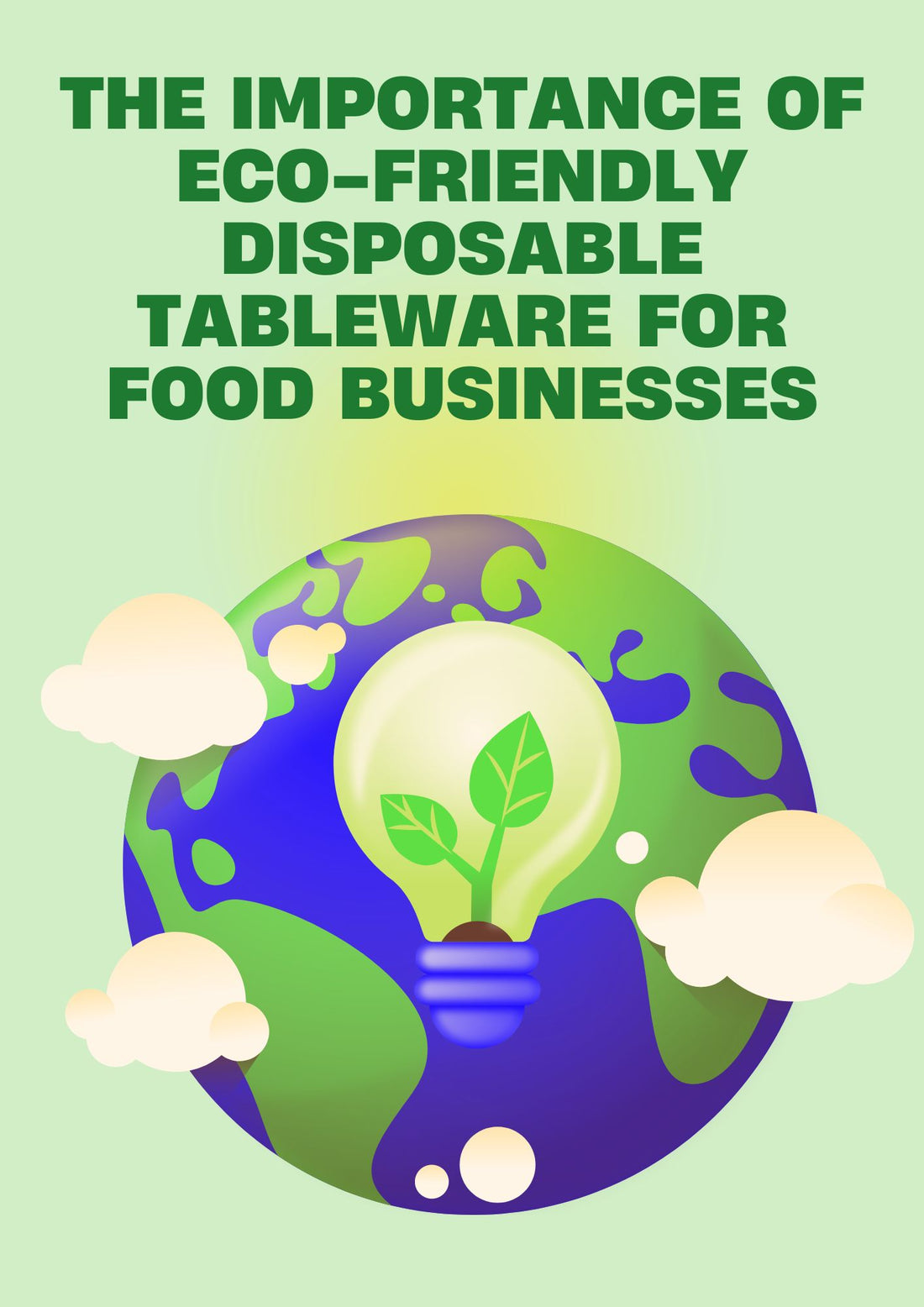
The Importance of Eco-friendly Disposable Tableware for Food Businesses
Melika GHASEMIFARDTraditional disposable tableware, often made from plastics, contributes significantly to environmental pollution. These plastics take hundreds of years to decompose and often end up in oceans and landfills, harming wildlife and ecosystems. Eco-friendly alternatives, such as those made from bamboo, paper, or bioplastics, degrade much faster and with fewer environmental consequences. By choosing these options, you are reducing your business's carbon footprint and supporting global sustainability efforts.
Why Eco-Friendly Disposable Tableware is Essential for Food Businesses
Eco-friendly disposable tableware is becoming indispensable for food businesses not only as a response to increasing environmental regulations but also as a means to align with the growing consumer demand for sustainable practices. As patrons become more environmentally conscious, their preferences are shifting towards businesses that reflect their values. By adopting biodegradable and compostable tableware options, food businesses can enhance their brand image, attract a larger customer base, and demonstrate corporate responsibility. Moreover, using eco-friendly tableware helps reduce the significant environmental impact associated with plastic disposables, contributing to a cleaner, healthier planet. This shift not only meets the ethical expectations of consumers but also positions a business as a forward-thinking, environmentally responsible entity in the competitive food industry landscape.
Customer Perception and Brand Image
Modern consumers are increasingly making purchasing decisions based on a company's environmental responsibility. By integrating eco-friendly practices like using sustainable tableware, you enhance your brand's image and appeal to a broader, more environmentally aware customer base. This shift can lead to increased customer loyalty and can even justify premium pricing on your products due to the added value of sustainability.
Compliance and Regulations
Many regions are imposing stricter regulations on single-use plastics, which can affect food businesses that rely heavily on disposable tableware. Transitioning to eco-friendly options now can preemptively meet these regulations, avoiding future disruptions and potential fines.
Health Considerations
Some plastic tablewares contain chemicals that could leach into food, posing health risks to consumers. Eco-friendly alternatives are typically made from natural materials that are safer for direct food contact. By using these products, you ensure a healthier dining experience for your customers.
Types of Eco-friendly Disposable Tableware
There are several materials to consider when choosing sustainable disposable tableware:
Bamboo
Bamboo is one of the fastest-growing plants, making it a highly renewable resource. Bamboo tableware is strong, durable, and has a minimalistic appeal that can enhance the presentation of your dishes.
Palm Leaves
Palm leaf tableware is made from fallen leaves and is fully biodegradable and compostable. Each piece has a unique texture, adding a rustic charm to your table settings.
Sugarcane Bagasse
Bagasse is a byproduct of sugarcane processing and is used to make disposable tableware that is both biodegradable and sturdy. It is suitable for hot and cold foods and does not affect the flavor of the food.
Paper
While paper is a common material, ensure it is sourced sustainably and, ideally, coated with a biodegradable liner instead of traditional plastics.
Implementing Eco-friendly Practices
Transitioning to eco-friendly tableware involves more than just purchasing different products. Consider the following steps to effectively implement this change:
Supplier Selection
Choose suppliers who practice sustainable methods in their production and supply chain processes. This ensures that your eco-friendly tableware is genuinely beneficial from production to disposal.
Customer Education
Inform your customers about the eco-friendly tableware and its benefits. Educated customers are more likely to appreciate and support your sustainable choices.
Recycling and Composting
Implement waste management practices that promote recycling and composting of disposable tableware. This not only reduces waste but also reinforces your commitment to sustainability.
Feedback and Adaptation
Gather feedback from your customers and staff about the eco-friendly tableware. This feedback can guide further improvements and adaptations in your sustainability practices.
Challenges and Solutions
While the benefits are numerous, transitioning to eco-friendly tableware can present challenges such as cost and availability. To mitigate these issues, consider buying in bulk to reduce costs and partnering with reliable suppliers to ensure consistent availability. Also, regularly review your inventory and order processes to adjust to any fluctuations in demand or supply chain disruptions.
Conclusion
Adopting eco-friendly disposable tableware is a beneficial move for any food business looking to improve its environmental impact, customer satisfaction, and compliance with regulations. It's a straightforward yet effective step toward a more sustainable business model that resonates with modern consumers.
FAQs
Is eco-friendly disposable tableware more expensive than traditional options? A: Initially, it might be, but prices are decreasing as demand increases. Additionally, the investment can pay off in terms of customer satisfaction and compliance with regulations.
Can eco-friendly tableware be as durable as plastic? A: Yes, many eco-friendly materials are designed to handle a variety of food types and temperatures, from hot soups to cold desserts.
How do I dispose of biodegradable tableware? A: While biodegradable tableware will decompose naturally, the best practice is to dispose of it in a composting facility to ensure it breaks down correctly